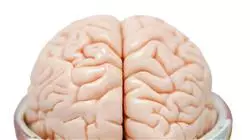University certificate
The world's largest faculty of medicine”
Introduction to the Program
This program will provide you with a sense of security in medical practice, which will help you grow personally and professionally”

The public's awareness of the need for specialized professionals is leading to an increase in the demand for rehabilitation physicians who are able to understand the functioning of the nervous system after an injury, and to get the most out of it in order to minimize the after-effects of the injury.
In addition, we are living in an era of great advances in the field of neuroscience, as well as Physiotherapy as a science, which forces us to have to update our knowledge both about the functioning of the nervous system, as well as how to evaluate and therapeutically approach a person with ABI, since each injury is different and will manifest itself in a different way in each patient.
This specialization aims to be a collection of the most up-to-date evidence and scientific knowledge of the nervous system and its rehabilitation when it is injured in a supervening way. Thanks to this, it is presented as a Postgraduate diploma capable of specializing the Rehabilitation Physician, who has never dealt with people with ABI and, nevertheless, is interested in having a professional future with this type of patient.
Likewise, the professional who is already a Rehabilitation Physician, whether or not they are dealing with ACD, will find a space to update their knowledge and become highly specialized in this group of patients.
On the other hand, by understanding so much information about neuroscience and functionality, it can be a useful tool for the Rehabilitation Physician who needs to know the ins and outs of the nervous system to better understand and address the injury or therapeutic need in a general way.
Update your knowledge through the Postgraduate diploma in Physiotherapeutic Approach to Acquired Brain Injury in Geriatrics for the Rehabilitation Physician"
The Postgraduate diploma in Physiotherapeutic Approach to Acquired Brain Injury in Geriatrics for the Rehabilitation Physician contains the most complete and up to date scientific program on the market. The most important features of the program include:
- Practical case studies presented by experts
- The graphic, schematic, and practical contents with which they are created provide scientific and practical information on the disciplines that are essential for professional practice
- New Developments in the Approach to Complications in Acquired Brain Injury for the Rehabilitation Physician
- It contains practical exercises where the self-evaluation process can be carried out to improve learning
- Special emphasis on innovative methodologies in the Approach to Complications in Acquired Brain Injury in the Rehabilitation Physician
- All of this will be complemented by theoretical lessons, questions to the expert, debate forums on controversial topics, and individual reflection assignments
- Content that is accessible from any fixed or portable device with an Internet connection
This education is the best investment you can make for two reasons: in addition to updating your knowledge in Physiotherapeutic Approach to Acquired Brain Injury in Geriatrics for the Rehabilitation Physician, you will obtain a Postgraduate diploma from TECH Global University”
It includes in its teaching staff professionals belonging to the field of Physiotherapeutic Approach to Acquired Brain Injury in Geriatrics for the Rehabilitation Physician who pour into this education the experience of their work, in addition to recognized specialists belonging to leading societies and prestigious universities.
The multimedia content developed with the latest educational technology will provide the professional with situated and contextual learning, i.e., a simulated environment that will provide immersive training program to train in real situations.
The program design is based on Problem-Based Learning, through which teachers must try to solve the different professional practice situations that arise throughout the course. For this reason, the student will be assisted by an innovative, interactive video system created by renowned and experienced experts in the field of Approach to Complications in Acquired Brain Injury in the Rehabilitation Physician with extensive teaching experience.

Take the opportunity to learn about the latest advances in Physiotherapeutic Approach to Acquired Brain Injury in Geriatrics for the Rehabilitation Physician”
Why study at TECH?
TECH is the world’s largest online university. With an impressive catalog of more than 14,000 university programs available in 11 languages, it is positioned as a leader in employability, with a 99% job placement rate. In addition, it relies on an enormous faculty of more than 6,000 professors of the highest international renown.

Study at the world's largest online university and guarantee your professional success. The future starts at TECH”
The world’s best online university according to FORBES
The prestigious Forbes magazine, specialized in business and finance, has highlighted TECH as “the world's best online university” This is what they have recently stated in an article in their digital edition in which they echo the success story of this institution, “thanks to the academic offer it provides, the selection of its teaching staff, and an innovative learning method aimed at educating the professionals of the future”
A revolutionary study method, a cutting-edge faculty and a practical focus: the key to TECH's success.
The most complete study plans on the university scene
TECH offers the most complete study plans on the university scene, with syllabuses that cover fundamental concepts and, at the same time, the main scientific advances in their specific scientific areas. In addition, these programs are continuously being updated to guarantee students the academic vanguard and the most in-demand professional skills. In this way, the university's qualifications provide its graduates with a significant advantage to propel their careers to success.
TECH offers the most comprehensive and intensive study plans on the current university scene.
A world-class teaching staff
TECH's teaching staff is made up of more than 6,000 professors with the highest international recognition. Professors, researchers and top executives of multinational companies, including Isaiah Covington, performance coach of the Boston Celtics; Magda Romanska, principal investigator at Harvard MetaLAB; Ignacio Wistumba, chairman of the department of translational molecular pathology at MD Anderson Cancer Center; and D.W. Pine, creative director of TIME magazine, among others.
Internationally renowned experts, specialized in different branches of Health, Technology, Communication and Business, form part of the TECH faculty.
A unique learning method
TECH is the first university to use Relearning in all its programs. It is the best online learning methodology, accredited with international teaching quality certifications, provided by prestigious educational agencies. In addition, this disruptive educational model is complemented with the “Case Method”, thereby setting up a unique online teaching strategy. Innovative teaching resources are also implemented, including detailed videos, infographics and interactive summaries.
TECH combines Relearning and the Case Method in all its university programs to guarantee excellent theoretical and practical learning, studying whenever and wherever you want.
The world's largest online university
TECH is the world’s largest online university. We are the largest educational institution, with the best and widest online educational catalog, one hundred percent online and covering the vast majority of areas of knowledge. We offer a large selection of our own degrees and accredited online undergraduate and postgraduate degrees. In total, more than 14,000 university degrees, in eleven different languages, make us the largest educational largest in the world.
TECH has the world's most extensive catalog of academic and official programs, available in more than 11 languages.
Google Premier Partner
The American technology giant has awarded TECH the Google Google Premier Partner badge. This award, which is only available to 3% of the world's companies, highlights the efficient, flexible and tailored experience that this university provides to students. The recognition as a Google Premier Partner not only accredits the maximum rigor, performance and investment in TECH's digital infrastructures, but also places this university as one of the world's leading technology companies.
Google has positioned TECH in the top 3% of the world's most important technology companies by awarding it its Google Premier Partner badge.
The official online university of the NBA
TECH is the official online university of the NBA. Thanks to our agreement with the biggest league in basketball, we offer our students exclusive university programs, as well as a wide variety of educational resources focused on the business of the league and other areas of the sports industry. Each program is made up of a uniquely designed syllabus and features exceptional guest hosts: professionals with a distinguished sports background who will offer their expertise on the most relevant topics.
TECH has been selected by the NBA, the world's top basketball league, as its official online university.
The top-rated university by its students
Students have positioned TECH as the world's top-rated university on the main review websites, with a highest rating of 4.9 out of 5, obtained from more than 1,000 reviews. These results consolidate TECH as the benchmark university institution at an international level, reflecting the excellence and positive impact of its educational model.” reflecting the excellence and positive impact of its educational model.”
TECH is the world’s top-rated university by its students.
Leaders in employability
TECH has managed to become the leading university in employability. 99% of its students obtain jobs in the academic field they have studied, within one year of completing any of the university's programs. A similar number achieve immediate career enhancement. All this thanks to a study methodology that bases its effectiveness on the acquisition of practical skills, which are absolutely necessary for professional development.
99% of TECH graduates find a job within a year of completing their studies.
Postgraduate Diploma in Physiotherapeutic Approach to Acquired Brain Injury in Geriatrics for the Rehabilitation Physician
Currently, the field of neurological rehabilitation is constantly evolving, so it is important for the TECH Rehabilitation Physician to have specialized and updated training in the Postgraduate Diploma in Physiotherapeutic Approach to Acquired Brain Injury in Geriatrics. This program offers a 100% online methodology, which allows students to acquire the necessary knowledge without geographical limitations and with time flexibility. The quality of the content of the program is exceptional, as it is designed and directed by expert teachers in the field, who have extensive professional experience in the field of Neurorehabilitation and Geriatrics. Students will have the opportunity to acquire fundamental skills and competencies for the therapeutic approach to Acquired Brain Injury in Geriatrics, such as the description of the structural and functional anatomical bases of the nervous system.
You will specialize in an innovative way and with the help of experts.
Students will learn to differentiate what is and what is not DCA, identify various symptoms and syndromes according to the area of DCA involvement, recognize hemineglect and pusher syndrome, understand the difference between cerebellar symptomatology versus Basal Ganglia symptomatology, distinguish spasticity from other tone alterations, and recognize apraxia and alien hand syndrome, among other skills. The program also focuses on the importance of adapting the environment to be as functional as possible, as well as the role of the family and legal guardians in the rehabilitation process. Students will also have the opportunity to review the technical aids most commonly used in the geriatric patient with ACD. Thus, this Postgraduate Diploma in Physiotherapeutic Approach to Acquired Brain Injury in Geriatrics is a unique opportunity for the TECH Rehabilitation Physician to acquire specialized and updated skills and competencies in the field of neurological and geriatric rehabilitation.







